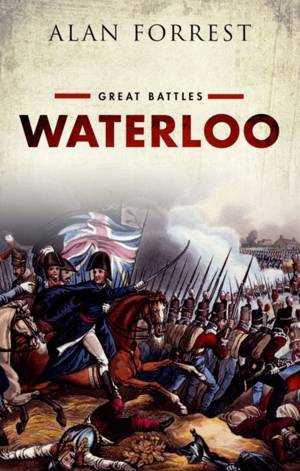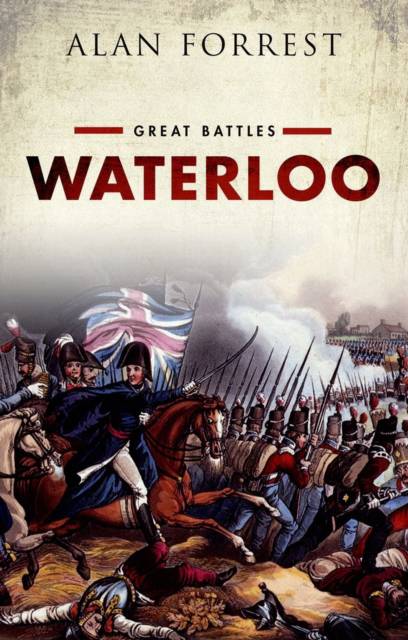
- Afhalen na 1 uur in een winkel met voorraad
- Gratis thuislevering in België vanaf € 30
- Ruim aanbod met 7 miljoen producten
- Afhalen na 1 uur in een winkel met voorraad
- Gratis thuislevering in België vanaf € 30
- Ruim aanbod met 7 miljoen producten
Zoeken
€ 29,45
+ 58 punten
Uitvoering
Omschrijving
Waterloo was the last battle fought by Napoleon and the one which finally ended his imperial dreams. It involved huge armies and heavy losses on both sides. For those who fought in it - Dutch and Belgians, Prussians and Hanoverians as well as British and French troops - it was a murderous struggle. For all its ferocity, it was a battle that would be remembered very differently across Europe. In Britain it would be seen as an iconic battle whose memory would be enmeshed in British national identity across the following century. It failed to achieve this iconic status elsewhere. In Prussia it was overshadowed by the Battle of the Nations at Leipzig, while in Holland it was a simple appendage to the prestige of the House of Orange. And in France it was the epitome of a heroic defeat that served to sustain the romantic legend of the Napoleonic Wars and contributed to the growing cult of Napoleon himself. Whereas most works on the battle of Waterloo are only military in nature, Alan Forrest's outstanding work-the first in the Great Battles series -- describes every aspect of how the battle was fought but deals equally with the aftermath: how it has been commemorated, and its legacy. The GREAT BATTLES series
Certain battles acquire iconic status in history. Each book in this new series will examine both the battle itself, and also its legacy in the imaginations of the victors and the vanquished. Titles in preparation include: Agincourt, Lützen, Hattin, El Alamein, and Gettysburg.
Certain battles acquire iconic status in history. Each book in this new series will examine both the battle itself, and also its legacy in the imaginations of the victors and the vanquished. Titles in preparation include: Agincourt, Lützen, Hattin, El Alamein, and Gettysburg.
Specificaties
Betrokkenen
- Auteur(s):
- Uitgeverij:
Inhoud
- Aantal bladzijden:
- 242
- Taal:
- Engels
- Reeks:
Eigenschappen
- Productcode (EAN):
- 9780199663255
- Verschijningsdatum:
- 1/04/2015
- Uitvoering:
- Hardcover
- Formaat:
- Genaaid
- Afmetingen:
- 145 mm x 224 mm
- Gewicht:
- 408 g

Alleen bij Standaard Boekhandel
+ 58 punten op je klantenkaart van Standaard Boekhandel
Beoordelingen
We publiceren alleen reviews die voldoen aan de voorwaarden voor reviews. Bekijk onze voorwaarden voor reviews.











